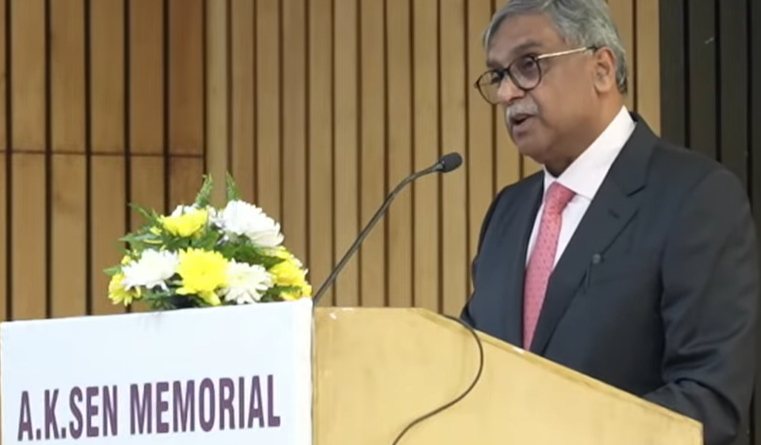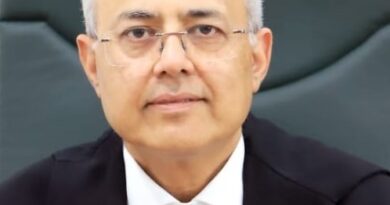Justice Vikram Nath Calls for Legal Readiness as AI Reshapes the Future of Work
(By Syed Ali Taher Abedi)
New Delhi, Friday: Supreme Court Justice Vikram Nath has cautioned that artificial intelligence and emerging technologies will challenge the legal system in unprecedented ways, urging judges and lawyers to anchor themselves in fairness, clarity, and discipline.
“As we look ahead, we will face new questions that touch every part of the legal system: data protection and dignity, responsible speech in the digital sphere, markets that reward enterprise without losing fairness, environmental choices that balance growth with care for the planet, and new technologies, especially artificial intelligence, that will change how we work and live.”
Delivering the A.K. Sen Memorial Lecture at the International Centre in New Delhi, Justice Nath emphasized that law is not merely a set of rules but a way of treating people. He reminded institutions to uphold the moral purpose behind legal systems, warning that only essential professional habits can keep the law steady through technological and social change.
“Law is a set of rules, yes, but it is also a way of treating people. It is a promise that power will answer to reason, and that reason will be open to evidence. It is a promise that even when we act with speed, we will not forget fairness; and even when we act with firmness, we will not forget compassion.”
Addressing young lawyers and students, he stressed that success in the profession rests on “small, consistent acts of discipline and humility,” which shape reputation and character. He reflected on the qualities expected of judges, noting that clarity and restraint are forms of respect owed to institutions and the public.
“But if we hold on to a few steady habits and remember that the law exists to serve people, the path will be clearer.”
“The Constitution speaks to everyone, and judgments should do the same,” Justice Nath said, adding that leadership in law is built gradually through prominent cases and moments of recognition. Trust, once earned, creates responsibility and influence.
“Do the simple things well. Read the papers carefully, be on time, treat everyone in the courtroom with respect, and keep your language straight. When you lose, learn why. When you win, thank the people who helped you. Find mentors who correct you”
He said trust once earned through such habits, caters responsibility and influence
“These small habits, repeated over years, become character. And character is what persuades courts and clients to trust you with difficult work.”
Artificial Intelligence is no longer a distant concept—it is rapidly reshaping how people work, live, and interact with institutions. At a time when technology promises both efficiency and upheaval, Supreme Court Justice Vikram Nath has offered a timely reminder: the legal system must not lose sight of its moral compass.
“He dealt with disagreement without raising his voice. He was willing to hear every concern, but he did not let debate become delay. He believed that clarity is a form of respect, to the House, to the Courts, and to the public. We on the Bench should hold ourselves to the same measure: clear reasons, a steady tone, and decisions that ordinary people can read and follow. The Constitution speaks to everyone; our judgments should do the same.”
Concluding his lecture, he reminded the audience that the true spirit of law lies in its humanity, a principle that must guide the profession as AI reshapes how people work and live.




